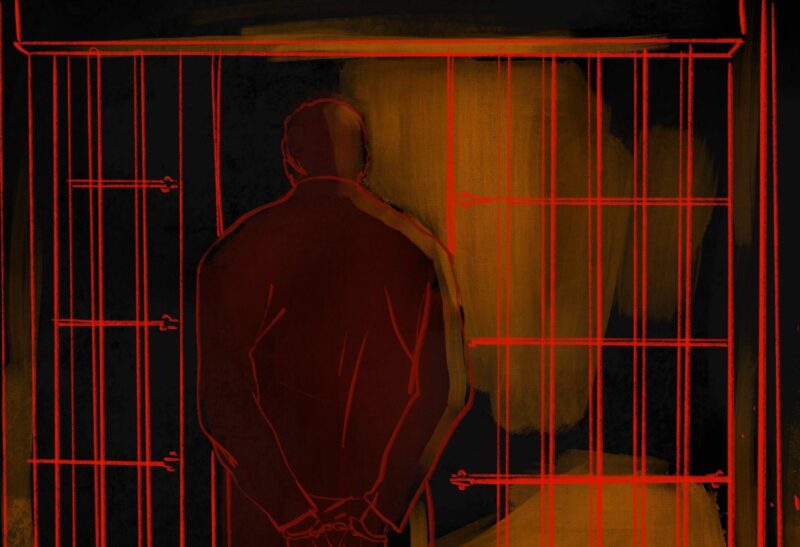
This article was originally published by the
BBC Azerbaijani Service.
After an attempted coup in Turkey in July of 2016, Recep Tayyip Erdogan ferociously attacked the Fethullah Gulen network, claiming that the religious leader currently residing in the United States stood behind the coup attempt.
Gulen’s connections in Azerbaijan were also targeted.
Gulen’s movement – unofficially named “Hizmet” or “the Service” – took form in Turkey under his management and arrived in Azerbaijan in the 1990’s after the fall of the Soviet Union.
The main goal of the movement was to revive Islam which had become weakened under the Soviet state’s official atheist policy. However, given the political reality on the ground in Azerbaijan – that is, the historical dedication of the Azerbaijani state to secularism – the methods and goals of the movement were adjusted.
According to researcher Bayram Balchi, Fethullah Gulen’s movement focuses on three areas; media, education and business.
In the mid-1990’s, the Gulen movement set up the first color printing press in Azerbaijan, and began publishing, “Zaman.” The paper’s professional content and material made it quickly one of the country’s most popular newspapers. Gulen’s TV channel, Samanyolu, also became popular despite its exclusive broadcasting in Turkish.
A community interested and dedicated to Gulen’s ideals attracted more and more members, and gained respect from outside its membership as well.
After a while, Samanyolu opened its own studio in Azerbaijan under the name of Khazar TV, and programming became available in Azerbaijani.
Additional Gulen – linked ventures include a vast educational network of schools and educational facilities operating in more than 160 countries. As of 2009, it was estimated that more than 2 million students were receiving an education in a Gulen affiliated school. Education in these establishments tends to focus on science and mathematics; religious instruction, varying on the country, is a minor aspect of the curriculum.
Gulen’s biggest business project is the International Society of Turkish Industrialists and Businessmen (TUSIAB).
In Azerbaijan, Gulen schools were until recently run by Çag Educational Institutions (Çag Eğitim İsletmeleri) As of 2013, there were 12 high schools and 13 prep courses running throughout the entire country.
After the collapse of the Soviet Union, the state of the education system made these high schools the most important in the country, and of the highest quality. Students graduating from these schools proved themselves to be the best and brightest in the country.
In 1993, Cag Educational Institutions launched Qavqaz University, which offered a corruption – free alternative to local universities. Initially, students were acquainted with Islamic ideas through tolerance and discussion, however the Azerbaijani Ministry of Education quickly closed courses on theology and pushed the hard sciences.
To supplement the lack of an official theological education in Gulen’s lyceums, students were asked to stay after school hours for what were called “teacher talks”, during which teachers and theologians would be brought in to discuss religious ideas and principles.
As in Turkey, graduates of Gulen schools were regarded as moderate Islamists. They developed interfaith dialogues and called themselves representatives of “enlightened Islam” (ilımlı islam) with “friendly intentions” (xoşgörü). However, many graduates of these schools remain entirely secular as well.
Gulen”s establishments in Azerbaijan demonstrated strong loyalty to the ruling elite, and cooperation between Gulen and Azerbaijan was visible not only at home, but in Turkey and in the West as well; Gulen’s extensive international network has on multiple occasions used its lobbying power for Aliyev’s government.
But a serious test was awaiting the relationship between Turkey’s Islamist elite and the government.
Relations between Turkey’s Erdogan and Gulen
In 1996, the head of the pan-Islamist Welfare Party, Necmetin Erbakan, became Prime Minister. This seriously worried the military, Turkey’s ‘guarantor’ of a secular constitution and Republic.
Erbakan’s government collapsed in the beginning of 1997, after the so called “post-modern coup” when the Turkish military issued a warning to the government on 28 February for its overly friendly and warm relationship with Islam. The Welfare Party was shut down by a court ruling, and Erbakan was banned from political activity. Erdogan, a member of the party and the then Mayor of Istanbul, was arrested. During this period, Gulen emigrated to the US to avoid persecution as well. He was subsequently convicted in absentia in Turkey.
Soon a struggle arose within the ranks of the former members of the banned Welfare party. The old guard faced rebellious “youth” who described themselves as reformists and moderates. The two sides clashed to take over the leadership of the newly formed Virtue Party which had replaced the banned Welfare party. The old guard ultimately won However, the “youth group”, partially led by Erdogan, left the organization and find a new home under the leadership of Erdogan himself in the form of the Justice and Development Party (AKP) – Turkey’s leading party today.
It is important to note that the Gulen movement did not have any noticeable relations with Erbakan’s Welfare Party, and he was more often seen in the company of the country’s secular leaders, such as Ecevit and Chiller.
Gulen and Erdogan were brought together by the fact that Erdogan’s supporters called themselves reformist and innovative Islamists, and they separated themselves from strict political Islam.
Until then, Gulen had avoided any direct involvement in politics. Gulen’s movement focused on education and media projects, and actively sought to promote its followers into the low and middle level ranks of the judicial system and police force of the country.
Erdogan led the AKP to victory in 2002, much with the help of Fethullah Gulen and his supporters.
After the 2002 election victory of the AKP, a program of discreet islamization was created to benefit the interests of both members of this informal coalition.
They jointly began targeting the secular components of the army and began “cleansing” operations, dismissing personnel and replacing them with staff loyal to Erdogan and Hizmet, Gulen’s movement.
But after these blows to secularism, Erdogan soon became more autocratic, reviving his Pan-Islamist position while Gulen’s movement, Hizmet, continued to grow with success in the public sector. Competition between the two leaders began to garner hostility between the former partners.
Erdogan and Gulen supporters seriously clashed for the first time in 2012 during the “MIT Crisis” (National Intelligence Agency). According to al-monitor, the trial was largely “interpreted as a power struggle between pro-Gulen police/judiciary and the AKP.”
It seems that in an attempt to weaken the base of his newly emerged rival, in 2013, Erdogan’s government announced the closure of all university prep courses, almost third of which were under the control of Gulen’s movement. Gulen’s media responded with harsh criticism of this measure.
Soon afterwards, Gulen’s sympathizers in the judiciary and police sectors began to charge Erdogan’s government with corruption, leading to a number of arrests.
Although Erdogan forced the resignation of three members of his government during the crisis, he harshly retaliated by starting another cleansing of the state apparatus from alleged Gulen sympathaizers by calling them a “parallel state within a state.”
Erdogan’s struggle with the Gulen movement in Azerbaijan
Erdogan’s struggles against Hizmet also extends beyond the country and Gulen’s activities in Azerbaijan have become his main targets.
In April 2014, Erdogan said the he had submitted to the Azerbaijani government a list of Gulen supporters.
At the same time in March of this year, SOCAR vice president Halik Mamedov said that Gulen schools had come under the control of the company. Khazar TV and the prep courses have come under the control of government representatives. In the wake of this campaign, several state officials were dismissed for alleged links to Gulen’s movement as well.
These demands to take measures against the Gulen movement in Azerbaijan were renewed after the failed coup attempt. The rector of Qafqaz University was dismissed, and SOCAR announced that it had taken control of the university. ANS TV’s license was rescinded for its intentions to broadcast an interview with Gulen during the attempted coup in July. Moreover, its seems that SOCAR’s offices in Turkey have been raided and searched by Turkish law enforcement.
While Erdogan’s pressure on Gulen followers is growing world wide, the position of the Azerbaijani government is quite difficult. Succumbing to the pressure of Erdogan will mean abandoning relations with an old ally: Fethullah Gulen.



